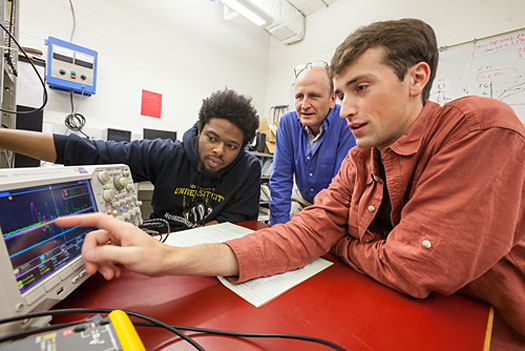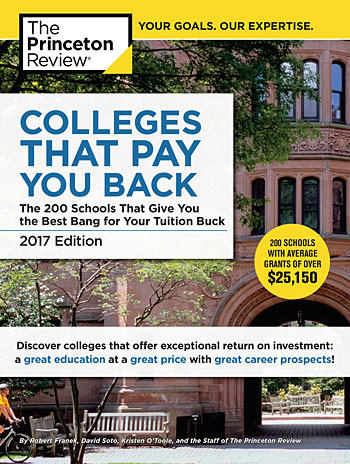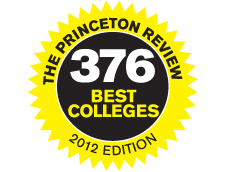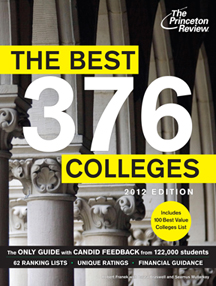Lawrence University is one of the nation’s best colleges for students seeking an exceptional education with great career preparation at an affordable price according to The Princeton Review.
Lawrence was included in the education services company’s 2017 edition of its just released book “Colleges That Pay You Back: The 200 Schools That Give You the Best Bang for Your Tuition Buck.” Of the schools profiled in the book, 73 are public and 127 are private. There were also nine tuition-free schools included. 
The Princeton Review selected the 200 schools based on return on investment ratings it tallied for 650 schools last year. The ratings weighted 40 data points covering topics from academics, cost and financial aid to graduation rates, student debt, alumni salaries and job satisfaction.
The data was culled from the company’s surveys of administrators and students in 2015-16 and from PayScale.com‘s surveys of school alumni conducted through April 2016.
“We are very happy that The Princeton Review continues to count Lawrence alumni among those most significantly impacted by their alma mater,” said Ken Anselment, dean of admissions and financial aid.
“We know from research that students who engage in high-impact educational programs — internships, intensive research experiences, one-on-one course work, and a senior capstone like our Senior Experience — are well-positioned to thrive in their lives after college, not just six months out, but for the rest of their lives. The Princeton Review’s approach to this particular rating captures the outcomes of that approach very well.”
In the “Career Information” section of the profile, Lawrence earned an exceptional ROI rating score of 88, with median starting salaries for graduates of $36,400 and median mid-career salaries of $89,500.
 In The Princeton Review’s sublist of other rankings, Lawrence was ninth nationally among the top 25 best schools for “making an impact” based on student ratings and responses to survey questions covering community service opportunities, student government, sustainability efforts and on-campus student engagement. Lawrence also was ranked 20th nationally for “best classroom experience.”
In The Princeton Review’s sublist of other rankings, Lawrence was ninth nationally among the top 25 best schools for “making an impact” based on student ratings and responses to survey questions covering community service opportunities, student government, sustainability efforts and on-campus student engagement. Lawrence also was ranked 20th nationally for “best classroom experience.”
In its profile, The Princeton Review cited Lawrence as “one of the most rigorous U.S. colleges” and for extolling “the values of a liberal education as means by which to build character, think critically, and create opportunities for choice.”
Schools included in the book “stand out not only for their outstanding academics, but also for their affordability via comparatively low sticker prices and or generous financial aid to students with need” according to Robert Franek, lead author and The Princeton Review’s Senior VP/Publisher.
“Students at these colleges also have access to extraordinary career services programs from their freshman year on, plus a lifetime of alumni connections and post-grad support,” said Franek.
About Lawrence University
Founded in 1847, Lawrence University uniquely integrates a college of liberal arts and sciences with a nationally recognized conservatory of music, both devoted exclusively to undergraduate education. It was selected for inclusion in the book “Colleges That Change Lives: 40 Schools That Will Change the Way You Think About College.” Engaged learning, the development of multiple interests and community outreach are central to the Lawrence experience. Lawrence draws its 1,500 students from nearly every state and more than 50 countries.

